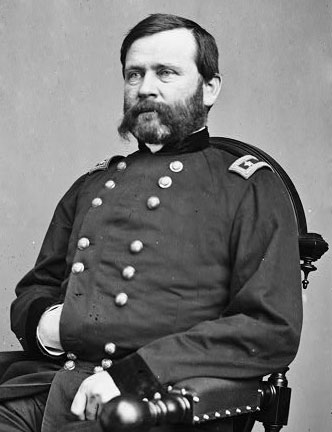Join us at 6:30 PM, April 29, at Jack’s Restaurant & Bar, located at the Northwest corner of the Westgate Shopping Mall in San Jose, near Campbell (1502 Saratoga Ave, San Jose, CA 95129) and via ZOOM. This month’s topic is
Alan Sissenwein on “William B. Franklin, One of the Union’s Worst Generals”

William B. Franklin is a largely forgotten figure today, but he contributed to three of the worst defeats the Union army suffered. His military career began on a stellar note, graduating first in West Point’s 39-man Class of 1843, but the Civil War was to show he was no combat general. Appointed by George McClellan to command the 6th Corps, Franklin’s worst moment came during the Antietam campaign when he was charged with relieving the besieged Federal garrison at Harpers Ferry. Through his own timidity, Franklin failed in his mission, resulting in the surrender of over 10,000 Union troops. He continued to display poor generalship at the Battle of Fredericksburg, for which he became a political scapegoat. Transferred to Louisiana, Franklin committed an error that worsened Union losses at the Battle of Sabine Crossroads, a Federal defeat that led to the collapse of Nathaniel Banks’ Red River campaign.
Alan Sissenwein has been a member of the South Bay Civil War Round Table since 1997 and currently serves as its vice president. A professional writer, he holds a bachelor’s degree in history from UC Berkeley and a master’s in journalism from the Medill School of Journalism at Northwestern University. He is currently writing the second draft of a book on the Battle of Fredericksburg.
